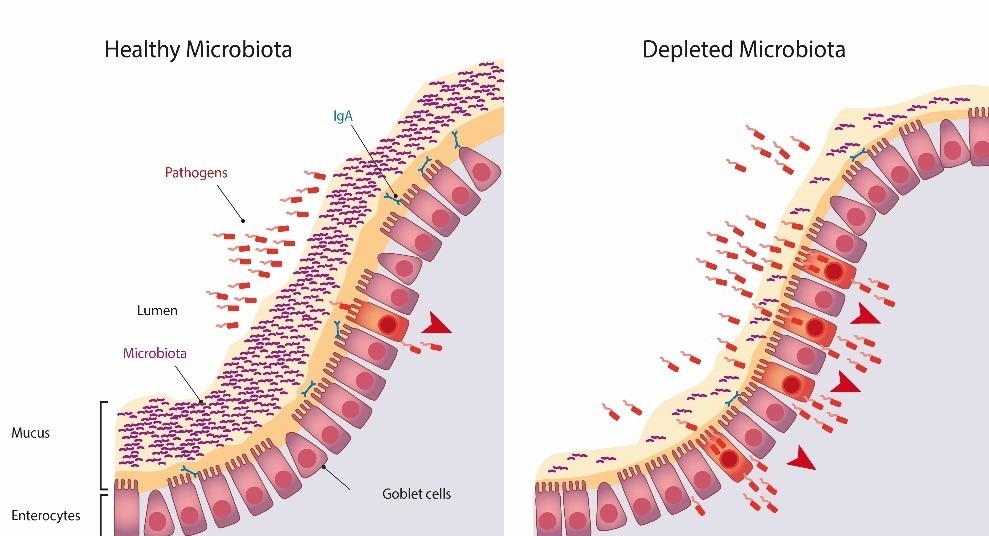Blog | Reading Time 2 minutes
Poultry Microbiota Insight: Part 3 – The guardian of poultry immunity
The digestive tract represents one of the major sites of exchange between the animal and its environment. Enteric pathogens are an important threat to modern poultry operations. The gut is also a major defensive site against the organisms. First, the animal is protected with its gut wall barrier and through the presence of many primary and secondary immune organs.
Triple protection
The gut microbiota plays a protective role at three main levels:
- A barrier effect: by adhering to the gut wall lining, the commensal bacteria prevent colonization by potential pathogens. This is the competitive exclusion effect.
- In the gut lumen, various anti-pathogens strategies are linked to the metabolism of the microbiota, such as the production of lactic acid, which acidifies the gut environment. Such conditions prevent the development of most pathogens, which thrive under high pH (like coliforms, Salmonella, etc.). Other commensal bacteria also produce antimicrobial metabolites.
- Through modulation of the immune system: modulation of inflammation and stimulation of the immune response.
An inflammatory state — which can be linked to stressful situations, pathogen pressure, etc. — has been linked to a drop of performance in poultry, which can be explained by two factors:
- Energy diversion towards the immune response and not growth or egg production. Up to 30% of energy can be lost due to the activation of the immune system and management of inflammation
- Drop-in feed intake
A well balanced, healthy microbiota is a key to preserving gut health in poultry production. The supplementation of poultry diets with selected probiotic microorganisms, such as Saccharomyces cerevisiae boulardii, has proven benefits on the three levels of the gut barrier and has been shown to reduce the fecal contamination with Salmonella spp. in broilers, for example.
Published Oct 29, 2019 | Updated May 30, 2023
Related articles
Need specific information?
Talk to an expert